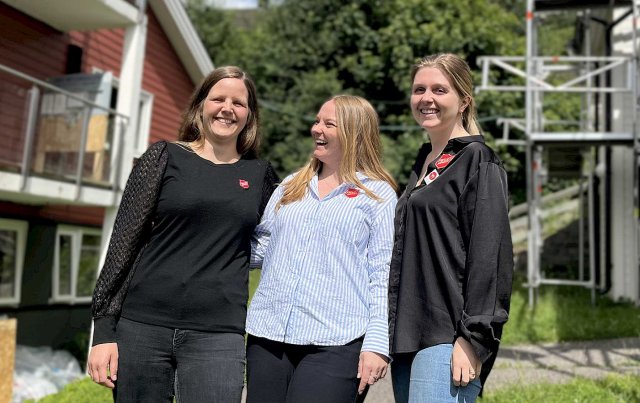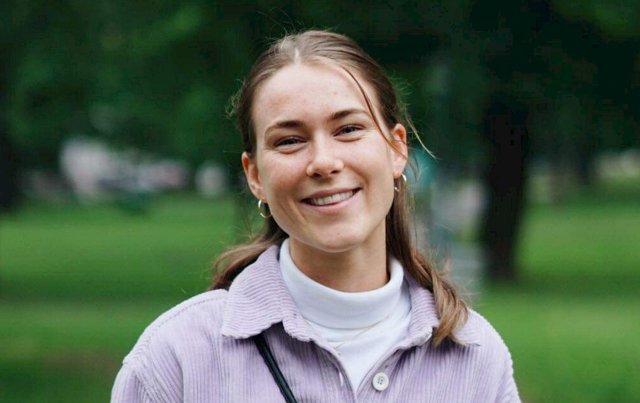We are launching new web pages. We appreciate your patience as we work to get all our content in place.

Social Work
Bachelor's degree
- Oslo
- Full-time
Do you want to understand how social problems arise and how you can offer help in a professional manner?
With a bachelor's degree in social work, you qualify as a social worker so that you can work to prevent and solve social problems. As a social worker, you can also support and help individuals and families who are in vulnerable and exposed life situations.
The study can be taken full-time or part-time.
- Language of instruction
- Norwegian
- ECTS credits
- 180
- Study length
- 3 years
- Supported by Lånekassen
- Yes
- Application deadline
- April 15th 2025
- Start date
- 11. august 2025
- Admission requirements and GPA
- See requirements
- Price per semester
- NOK 8449 (Prisdetaljer)
General university admissions certification.
You also have the opportunity to apply on the basis of prior learning and work experience.
Applicants with foreign education must document that they meet the requirements for Norwegian and English language proficiency in the Regulations concerning Admission to Higher Education (For-2017-01-06-13).
When ranking applicants, VID's supplementary provisions for admission apply. Read the provisions here.
Admission score requirements
Supplementary admission 2024:
Ordinary quota: 50.3
First-time certificate: 42.7
Police certificate:
A police certificate is required for this program.
More information about admission to VID Specialized University
Social work is a practical profession and an academic discipline. A Bachelor's degree in social work is a course of study that grants the professional title of social worker.
Social workers hold positions within NAV (Norwegian Labour and Welfare Administration), child welfare services, health and care services, substance abuse care, mental health care, schools, hospitals, family services, correctional services, work and integration measures, and in voluntary organizations. In addition to direct work with people, social workers are involved in political influence, research, service development, community work, teaching, administration, and management.
Being a social worker is about preventing, limiting, or solving social problems and improving people's living conditions and quality of life. The aim of the program is to educate knowledgeable and resourceful social workers who can assist children, adolescents, adults, and the elderly who are in vulnerable or exposed life situations. The program emphasizes interdisciplinary and interagency collaboration - a skill that is necessary to be able to offer comprehensive, individually adapted, and coordinated services.
Social workers work to assist individuals and groups who are in difficult life situations and to change conditions in society that create social inequality. Social work thus has a dual mandate. This dual mandate requires knowledge of political, economic and legal framework conditions on the one hand, and knowledge of people and social problems on the other. The study integrates topics from psychology, sociology, ethics, law, social policy, science theory and research methods. Value awareness, life course perspective, empowerment and participation constitute the study's profile at VID, and are thematized in various ways throughout the study.
The study is based on an understanding of learning as an active process that unfolds in interaction with other people. The study therefore has varied teaching and learning methods with a focus on self-activity and participation to strengthen the learning process. Within various subjects, there is work with skills training in both teacher-led and student-led groups. Practice and fieldwork make up about a quarter of the study. During the practical periods, you will have the opportunity to translate theoretical knowledge into practical action.
The full-time education lasts for 3 years. Parts of the teaching and student activities are compulsory.
- An educational institution with long and broad experience in running the programme.
- A programme with close follow-up of students.
- Access to good and relevant internships.
- Opportunity for internships and theoretical studies abroad.
- A good study environment and focus on student democracy.
- A programme with a central location.
Practice is an important part of education. Here you get to use what you have learned in encounters with users. You must expect some travel to and from practice, but VID will, as far as possible, offer practice placements locally. If you live outside Oslo/Bærum, you can find your own practice placement and apply for approval from the university college. If you wish, you can choose to be assigned a practice placement in Oslo and the surrounding area. You can also do practice abroad.
Read more about practice periods here.
Our partners
You can have practice in all arenas that are relevant for social workers. Practice can be carried out within, among other things, NAV, child welfare, substance abuse care, mental health, psychiatry, somatic health, elderly care, environmental services in schools and measures for refugees/asylum seekers. The availability of practice placements may vary from practice period to practice period.
The Faculty of Social Sciences has partners in municipalities, the specialist health service and with private and non-profit actors.
We have cooperation agreements with Oslo municipality and Bærum municipality. In Oslo municipality, we have agreements on practice placements in most districts in addition to the Welfare Agency and the Children and Family Agency. We also cooperate with various practice locations in surrounding municipalities, such as Asker municipality, Lier municipality, Nittedal municipality and Lillestrøm municipality.
In the specialist health service, we cooperate with the following hospitals/enterprises:
- Diakonhjemmet Hospital
- Lovisenberg Hospital
- Oslo University Hospital
- Sunnaas Hospital
- Vestre Viken Hospital Trust
We also cooperate with several voluntary organizations such as the Salvation Army, the Church City Mission Foundation, the Norwegian Women's Public Health Association, Forandringshuset KFUK-KFUM, Fontenehus Norge and Kirkens SOS.
You can continue your studies at the master's degree level or choose one of the many continuing education programs in the field. The Faculty of Social Sciences offers a master's degree in social work, child welfare and child protection work, as well as family therapy. The studies provide the opportunity for specialization both through specialization assignments and work with a master's thesis. The master's thesis can build on topics from the bachelor's thesis. Parts of continuing education programs can, in some master's programs, be incorporated into the master's programs.
Educational resources used in connection with practice, practice assignments and for supervisors.
- Information about portfolio as a work and examination form. A portfolio is a collection of academic work done over a longer period. This is an information document about portfolio as a work form and examination form.
- Critical reflection. Critical reflection is a method for reflecting on one's own practice. It is based on an understanding that different forms of knowledge exist and that through reflection we can become more aware of what knowledge we build on and how it affects how we act.
- Feedback to fellow student. Information and tips for giving and receiving feedback on assignments from fellow students.
Do you have questions?
Programme Coordinator Cecilie Sudland | Advisor Yasmina Camilla Mohn |
Admissions Admissions Team |

